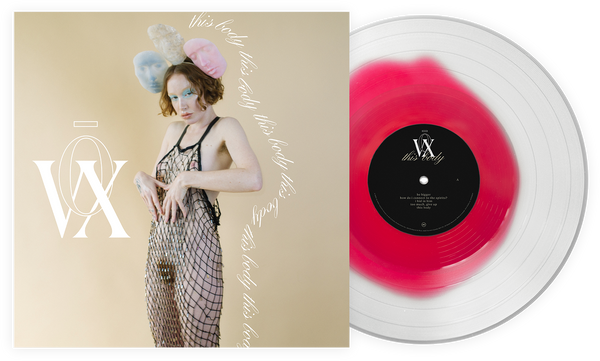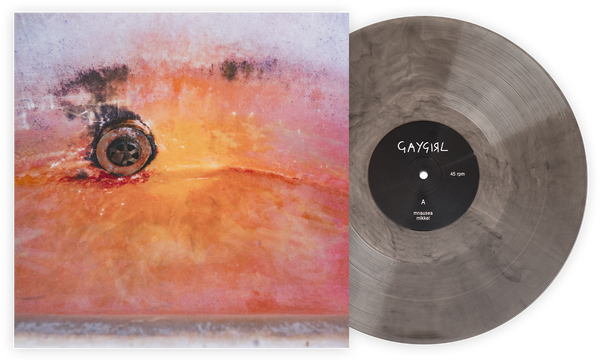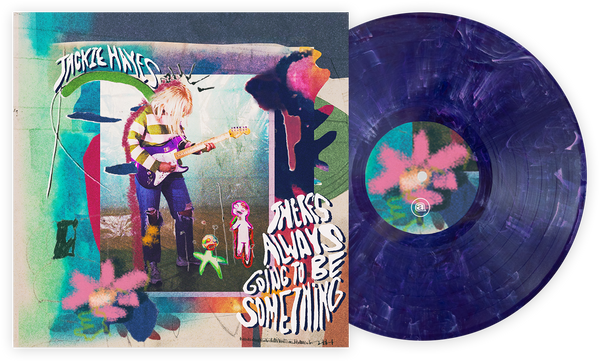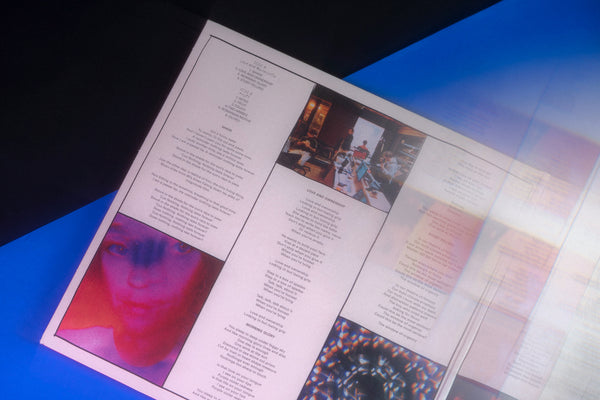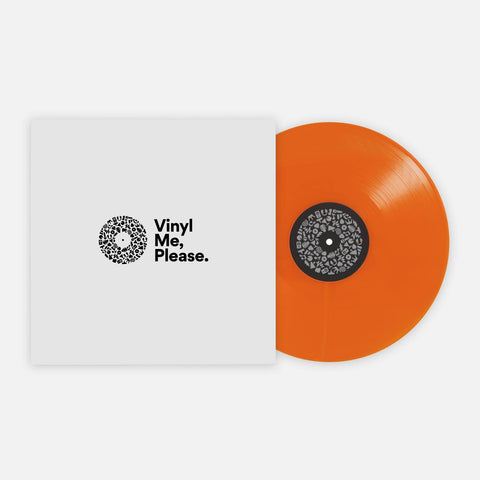VMP Rising is our series where we partner with up-and-coming artists to press their music to vinyl and highlight artists we think are going to be the Next Big Thing. Today we’re featuring Haze, the debut release from New York’s the Shacks.
Watching the Shacks play at SXSW, it occurs to you that despite this being 2018, and despite the band being born during the Clinton administration, they could be from any time between 1968 and 2018. Their blend of post-Elvis rock and pop music--the regality of the Kinks; the country twang of, as they say, George Motherfucking Jones; the airy chanson of Serge Gainsbourg; the psychedelia of Strawberry Alarm Clock--places them not in some current musical moment, but apart on their own island.
A group of early 20-somethings currently based in New York, but hailing from Princeton and Manhattan, the Shacks were formed when guitarist/producer Max Shrager met bassist/singer Shannon Wise when they were both in jazz band. They had hung out a couple times before Shrager asked Wise to sing on a song he’d written, and though the name came a couple months later, “Birds” and the title track for their debut LP were written in the matter of a week or two, and on the first demo the duo made as a group.
“It was really immediate and natural. [Drummer] Ben [Borchers] and I have been playing together for a long time, since early high school, and then when I started playing with Shannon, with her unique voice, it clicked really quickly, and it was really inspiring,” Shrager said during an interview at SXSW.
Haze is the result of a couple years of woodshedding in Shrager’s basement, one of 2018’s most confident indie rock debuts. From the first gentle wafts of “Haze” to the the mellifluous duet “Let Your Love,” Haze is an enchanting, unique album that can reveal a new favorite on each pass (my current one is “All Day Long”). The the young band’s work is starting to pay off; they were featured in an Apple commercial, and have already done extensive touring around the world (they muse about looking for the vaunted stop for Hogwarts at every train station in London).
You can grab our exclusive edition of Haze over here. In the below interview, we talk to the band about classic country music, using analog equipment, sending demos to Daptone, and why old music speaks to them more than any other.
Before you were in the Shacks, Max, you cold-emailed [soul and retro label] Daptone a demo tape to try to get signed. How old were you?
Max Shrager: 14
What did you send them at 14? Did you hear back?
MS: I sent them a song I wrote for Sharon Jones. I was in the 9th grade. Gabe [from Daptone] called me the next morning, actually. I was blown away. I couldn’t believe he called me. And then I went and met with them.
I’m trying to imagine myself as a 14-year-old, and I couldn’t imagine what I would think would happen. You ended up playing with a lot of their artists and working there, right?
MS: Yeah, I learned pretty quickly that there’s a lot of things for a 14-year-old to learn in the world, and to become an adult (laughs). I ended up learning a lot of those lessons while working at this amazing record label. It was an amazing way to grow up from a boy to a man (laughs).
I ended up touring with Charles Bradley and Lee Fields, and got a lot of experience I bring to our band.
You guys talk a lot in other interviews about how much you love old school country, and we’re here in Texas. So what are some of your favorite old country artists?
Ben Borchers: George Motherfucking Jones [whole band nods in agreement]. Roy Orbison.
Shannon Wise: Yeah, we love Roy Orbison.
BB: Hank Williams too.
MS: There’s this old Hank Williams tune, called “Kaw-Liga” that we’re all really thinking about a lot. So many country artists in the ‘60s did entire albums where they covered Hank Williams songs, and we were just listening to the Roy Orbison version of that song, which is just awesome.
Hank Williams’ songs just planted the seeds for so much of country music, and then had all of these elements of different American music, bluegrass, and blues. We just love him.
 This and above by Amileah Sutliff
This and above by Amileah Sutliff
You guys have said you only really listen to older music. What do you like about older music that you don’t get from new music, since after all, you guys are a new band.
MS: We’ve started listening to a lot of hip-hop in the last year. Kendrick Lamar is probably the newest. Tupac is one of my favorite artists of all time. But other than that it’s mostly ‘50s or ‘60s music.
SW: For all of us, it sort of speaks to us that modern music doesn’t really.
MS: We live in a different time. Everything’s different now. Not in a bad way, necessarily. The fonts that are on everything now are different than they were. Everything is just a different sense. Times change.
For some reason, for us, we just find the stuff from the ‘50s, ‘60s, and ‘70s a lot cooler. Even if the music isn’t as “good” in some cases, it just speaks to us more.
I think it just feels different if you’re at a record store and find this old Roy Orbison Hank Williams record than it does to find like, the new Future record, or whatever. It feels like you have to do more digging on your own [for that era].
MS: Oh yeah, the Princeton Record Exchange where Ben and I grew up is an amazing store. That’s how we learned a lot about music is by going in there--everything is under $10--and they have amazing records. We’d get records, and then trace that back: Who produced that? And tracing all the roots; vinyl played a big part of that. We don’t just listen to albums on vinyl or anything though.
BB: We buy a lot of CD’s there too.
MS: Vinyl is just such a great way to learn and dig.
Is the decision to be such an analog band a very conscious decision for you guys, then?
MS: We’ve tried a couple times to make tracks right into a computer, and it just doesn’t feel right. We record analog and eventually it ends up in the computer for finishing touches. The basis is all analog.
What are the added challenges of doing this stuff all analog? Are you having to track down old equipment all the time?
SW: It breaks a lot. And it’s hard to repair. We have one guy who we have to keep bringing our stuff back to to fix.
BB: There are like three machines in rotation. Two at the shop, and one we’re using.
Let’s talk about the record. The demos turned into songs on the record; how long did it take from that stage to the album being done?
SW: We made so much music over the last three years as a band. It was kind of a slow process of getting together and making songs, and doing mixing and mastering. The songs themselves have been done for a long time, but the mastering just got done earlier this year.
MS: We took a year to master the album, especially for vinyl.
SW: We spent that whole time making other songs. We have pretty much an entire another record finished already. We’re excited for it to be coming out now.
You’ve released instrumental versions of your songs. Are you going to put out an instrumental release of Haze?
Max: Absolutely. The deluxe CD version will come with both, and then eventually it’ll come out on vinyl. Some of the songs, the rhythm track has the vocals in it, so we couldn’t separate.
I also have to ask about the iPhone commercial you were in. I’m sure you get asked about it all the time, but what was that like? What have you guys seen from being in it?
SW: That song got really popular.
Did you expect that response?
SW: I guess so. That song was playing around everywhere for a while, so you figured it would really get around. It was really cool, we got a lot of exposure from that.
They picked the song, and then had the idea that I could be in the commercial too, and then a couple days later I was on a plane to L.A. to film it. It was very mysterious.
As things are at Apple. So what’s next for you guys? You have another record pretty much finished. Is that going to be LP two?
MS: Yeah, and we want to put it out as soon as possible. The industry these days there’s so much lead time. Back in the old days, there was definitely less lead time; people would record records and it’d come out a week later. We like that approach. If they let us, we’re going to put the next one out as soon as possible and then another one.
It’s very George Jones, putting out like 30 LPs in a year. It was like they were running with the masters to the pressing plant right away.
MS: Absolutely. What else can you do but keep plugging away and trying to find yourself and your sound evolve?
Andrew Winistorfer is Senior Director of Music and Editorial at Vinyl Me, Please, and a writer and editor of their books, 100 Albums You Need in Your Collection and The Best Record Stores in the United States. He’s written Listening Notes for more than 30 VMP releases, co-produced multiple VMP Anthologies, and executive produced the VMP Anthologies The Story of Vanguard, The Story of Willie Nelson, Miles Davis: The Electric Years and The Story of Waylon Jennings. He lives in Saint Paul, Minnesota.
Join the Club!
Join Now, Starting at $36Pages

